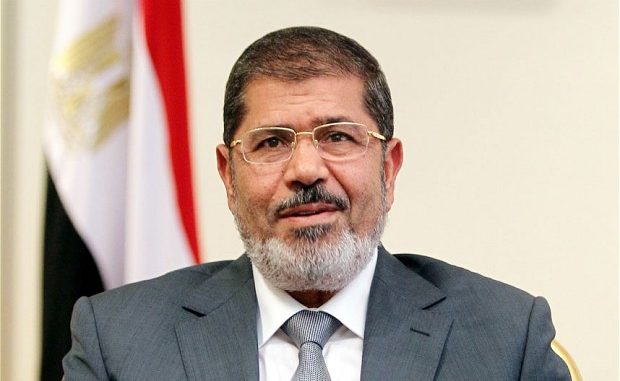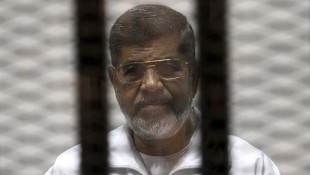
Egypt’s former President, Mohamed Morsi has been sentenced to death by an Egyptian court over a 2011 mass prison break. Egypt’s religious authorities will now have to give their opinion before the sentence can be carried out.
Morsi supporters from the Muslim Brotherhood movement have described the charges against him as “farcical”.

BYPASS THE CENSORS
Sign up to get unfiltered news delivered straight to your inbox.
You can unsubscribe any time. By subscribing you agree to our Terms of Use
Latest Video
Amnesty International demanded the immediate release of the former president and condemned Morsi’s death sentence, calling it “a charade based on null and void procedures.”
RT reports:
Morsi is among a total of 106 Muslim Brotherhood members sentenced to capital punishment over the incident. The Wadi al-Natrun prison break took place during the 2011 January revolution and eventually led to the deposition of Hosni Mubarak.
On January 28, 2011, Morsi was arrested along with 24 Muslim Brotherhood leaders and put into Wadi al-Natrun prison in Cairo, but he escaped two days later. Following the prison break, several other prisons saw multiple riots and thousands of inmates escaped.
According to prosecutors, the prisons were attacked by members of the Muslim Brotherhood, Hamas and Hezbollah, intending to free Islamist inmates.
Some outlets previously reported Morsi was sentenced to death for passing state secrets to foreign groups, including the Palestinian militant Hamas group and Lebanon’s Hezbollah, during his one year in office. However, that verdict does not include his name.
An official from the Muslim Brotherhood, Amr Darrag, has urged the international community to bring pressure to bear to prevent the ex-president’s death sentence.
“This is a political verdict and represents a murder crime that is about to be committed, and it should be stopped by the international community,” Darrag told Reuters.
The court is also seeking the death penalty for Khairat Shater, a leading member of the Muslim Brotherhood for conspiring with foreign militant groups, according to Reuters.
Many of those 122 sentenced to death were tried in absentia, including Yusuf Qaradawi, an Egyptian Islamic theologian, who is now living in Qatar.
All the cases will now be referred to the country’s Grand Mufti, Shawki Ibrahim Abdel-Karim Allam, the highest official of religious law, who will issue a final legal opinion.



